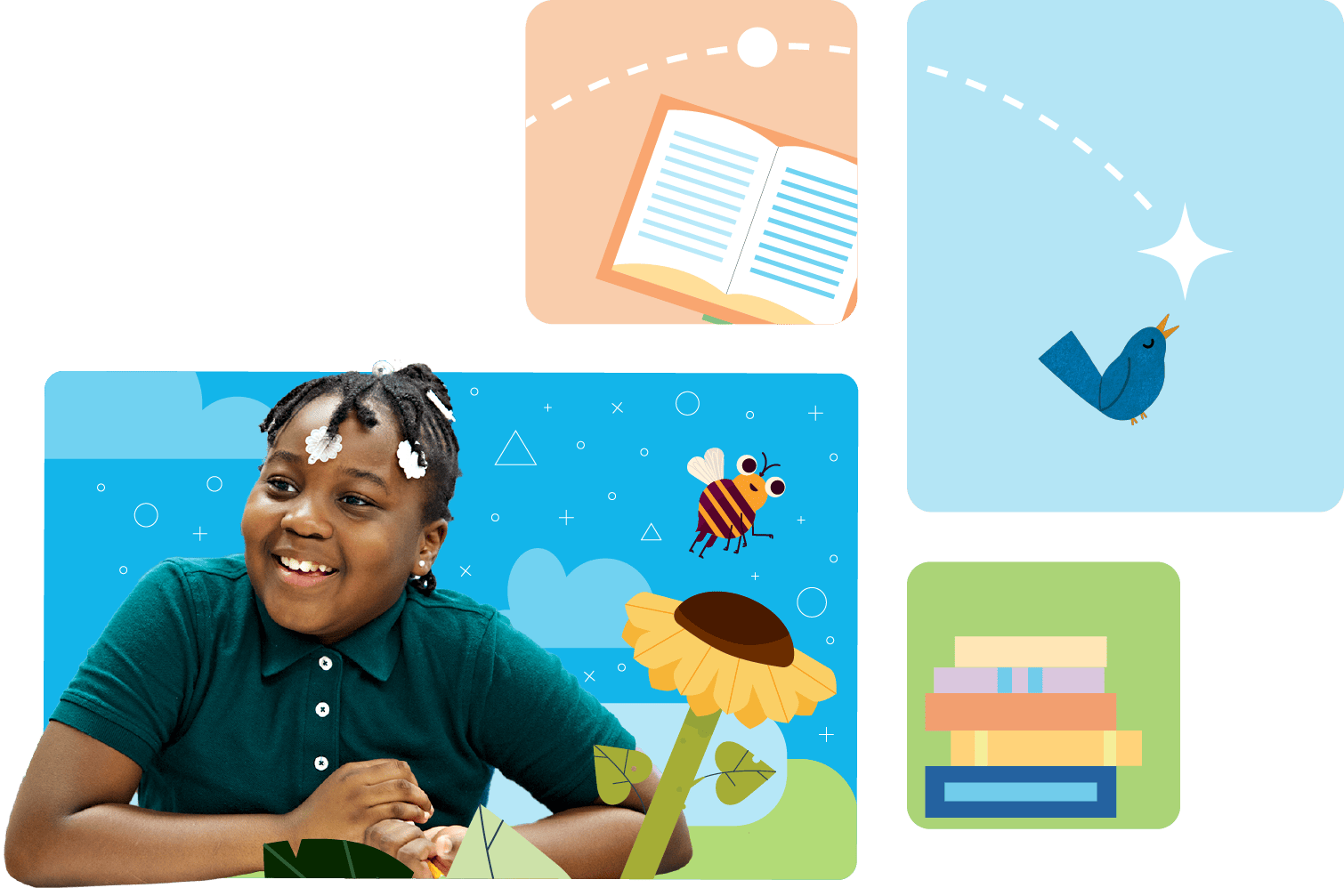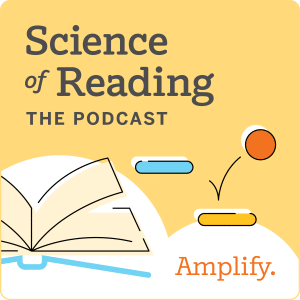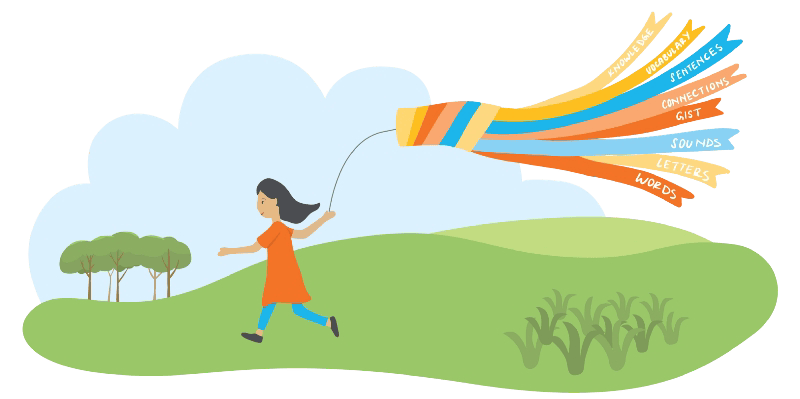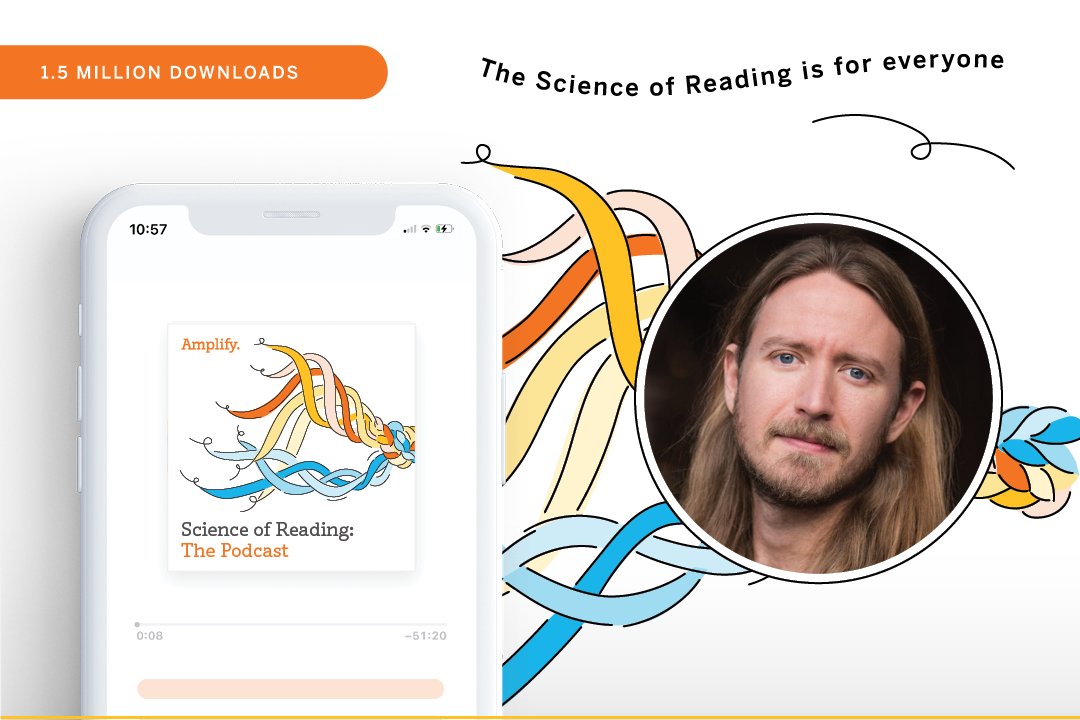
The Science of Reading has shown repeatedly and definitively that background knowledge is much more than a nice-to-have when it comes to literacy. In fact, itŌĆÖs a must.╠²
One recent independent study led by Sonia Q. Cabell, Ph.D., and Hyejin Hwang, Ph.D., conducted two trials of more than 1,200 kindergarten students. Reading comprehension tests revealed that students who used a knowledge-building curriculum, such as Amplify CKLA, showed statistically significant positive effects on both social studies knowledge and vocabulary, even over just one semester.╠²╠²╠²
So hereŌĆÖs what teachers need to know about the knowledge-building students require, starting early, to develop foundational literacy skills for life.
The power of knowledge and language comprehension, in action
Read the following passage.╠²
Start by putting your clay on the bat as close to the center as possible, then turn your wheel on at full speed. After adding water often enough to keep the clay glossy, adjust it until itŌĆÖs barely wobbling, then cone it up and center it further. Cone down and then open the clay. Lower your wheel speed to halfway and start pulling the walls. Compress the floor, and then start shaping. When youŌĆÖre happy with your shape, use your wire tool to remove it from the bat, and set it aside to start drying before you trim, glaze, and fire it.
If you were ever trained in pottery, you probably understood a lot of that. If you werenŌĆÖt, you could likely read the words and sense the tone, but most of the content would not make sense (Cone up? Cone down?) or stick in your mind at all.╠²
ThatŌĆÖs exactly how background knowledge powers reading comprehension.
The knowledge gap
Elementary students confront disparities in their background knowledge every day. Some have houses full of books and summers full of trips. One kid has a pet turtle, another celebrates Diwali, another grew up in the family restaurant. As you can probably imagine, theyŌĆÖd all get and retain a wide range of understanding from passages about, say, amphibians, alfredo sauce, and the Alps.╠²
Not all foundational literacy instruction is built to access the knowledge students bring to the classroom, or to grow the knowledge they need to understand what theyŌĆÖre reading.╠²
WhatŌĆÖs more, having less background knowledge is correlated with socioeconomic status, with students who come from lower income families generally having less background knowledge than those who come from higher-income families. ThatŌĆÖs how we know that knowledge is also an equity issue.
The role of writing instruction
Writing instruction grounded in the content of a knowledge-based curriculum can be a crucial contributor to knowledge-building, Wexler. It can help teachers:
- Identify which gaps in background knowledge are holding a given student back.
- Instruct students at higher grade levels, even if students reach those levels with gaps in background knowledge.
- Boost learning across subjects.
- Improve the quality of student writing itself, because itŌĆÖs grounded in a topic they can say something about.╠²
- Foster comprehension by familiarizing students with the complex syntax of written language in their own writing.╠²
The power of knowledge to connect╠²
Big picture: Connecting to a studentŌĆÖs background knowledge can help unlock their full potential as a reader, writer, and member of the classroom and school community.╠²
Allison Rice, elementary ELA curriculum coach for Kansas City Kansas Public Schools, about a girl in her class: ŌĆ£All through Unit 1 and halfway through Unit 2, she had not really participated or spoken in class, until they got to the lesson on Diwali. She celebrates Diwali. And all of a sudden, she had 1,000 things to contribute. Then her parents came in, they had never been into the school, and they finally felt welcomed and comfortable enough to come in and share about their culture, and the whole grade level had a huge party.ŌĆØ╠²
This student was able to use her cultureŌĆöand her knowledgeŌĆöto create community in her classroom. ŌĆ£Here’s this little girl,ŌĆØ says Rice, ŌĆ£who for the first time has felt seen and reflected.ŌĆØ
Literacy resources for teachers and more
- Free digital download: ╠²
- Webinar series:


